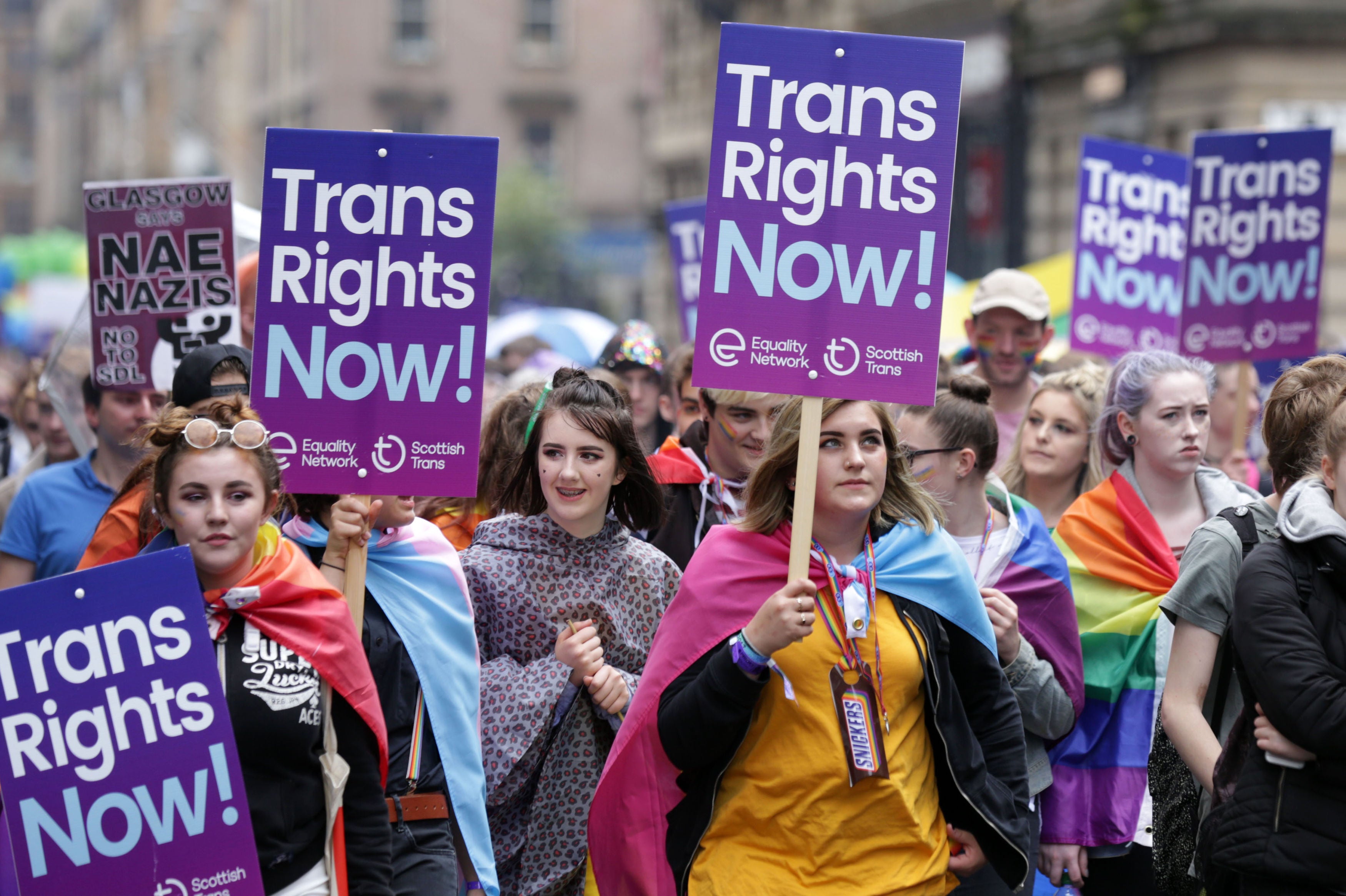LGBT organisations ask UN to revoke status of British rights watchdog
The groups said their submission to the UN was prompted by the Equality and Human Rights Commission’s stance on trans rights.

Your support helps us to tell the story
From reproductive rights to climate change to Big Tech, The Independent is on the ground when the story is developing. Whether it's investigating the financials of Elon Musk's pro-Trump PAC or producing our latest documentary, 'The A Word', which shines a light on the American women fighting for reproductive rights, we know how important it is to parse out the facts from the messaging.
At such a critical moment in US history, we need reporters on the ground. Your donation allows us to keep sending journalists to speak to both sides of the story.
The Independent is trusted by Americans across the entire political spectrum. And unlike many other quality news outlets, we choose not to lock Americans out of our reporting and analysis with paywalls. We believe quality journalism should be available to everyone, paid for by those who can afford it.
Your support makes all the difference.A group of 20 LGBT organisations have asked the UN to revoke the status of Britain’s Equality and Human Rights Commission (EHRC).
A 19-page submission to the UN – which the groups said was prompted by the EHRC’s stance on trans rights – asks for the independent status of the EHRC to be reviewed.
“Their recent statements on GRA reform in Scotland, and the conversion therapy ban in England and Wales not only reverse their long-held positions, but are in stark contrast to international human rights standards,” the groups said.
“The EHRC’s stance seeks to strip trans people of legal protections, and pose a grave threat to the ability of trans people to participate in daily life with dignity and respect.”
All appointments to our non-executive and executive roles are made through a fair, open and transparent recruitment process
The submission accuses the EHRC of lacking independence from the Government which it says influences appointments on the body and has politicised its positions.
Without the status, organisations cannot participate at the UN Human Rights Council.
A spokesperson for the EHRC told the BBC it takes all decisions impartially and “based on evidence in the UK and internationally”.
“All appointments to our non-executive and executive roles are made through a fair, open and transparent recruitment process,” the spokesperson said.
“The way the commission is governed and commissioners appointed is set out in the Equality Act, and has not changed since the commission was established.”
Last month, the EHRC was criticised by LGBT organisations after it said plans to change the law on gender recognition in Scotland required “further consideration”.
Scottish Government ministers had voiced proposals to reform the Gender Recognition Act to make it easier for people to change their legally recognised gender, with a bill expected at Holyrood this year.
But the EHRC said that “further consideration is needed before any change to the law should be made”.
A spokesperson for the body said “everyone’s concerns should be discussed and addressed carefully, openly and with respect, to avoid further damage and division”, but insisted more time is needed.
The EHRC is calling for further delays to legislation that our communities have been waiting on for many years
Stonewall, a leading LGBT group who is a signatory on the submission to the UN, said the EHRC’s statement was an attack on trans equality and said it is “deeply troubled” by the approach that the group is taking to trans people’s human rights.
“The EHRC is calling for further delays to legislation that our communities have been waiting on for many years,” a Stonewall spokesperson said, insisting that the Scottish Government has given “ample opportunity for consultation”.
A spokesperson for the charity said the EHRC’s comments “undermine the EHRC’s core purpose of regulating, promoting and upholding human rights”.
The Equality Network, a prominent LGBT charity in Scotland, echoed Stonewall’s comments, with director Tim Hopkins claiming that the EHRC board was “directly appointed” by the Government and was “failing to stand up for equality for trans people”.
Mr Hopkins added: “We do not need UK government appointees telling us in Scotland how to legislate in devolved areas, and we look forward to the Scottish government proceeding with this legislation soon.”